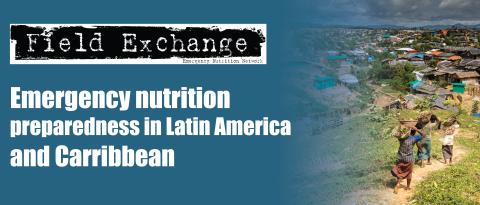Systematic review of breastfeeding protection, promotion and support in humanitarian emergencies
Research snapshot1
Infants and young children are the most vulnerable segments of the population. In emergency conditions, morbidity and crude mortality rates of these population groups often rise dramatically. The protective and beneficial influence of breastfeeding for both infants and mothers is particularly important. Interventions to protect, promote and support optimal breastfeeding practices in humanitarian emergencies, illustrated in several Infant and Young Children Feeding in Emergency (IYCF-E) guidelines, are scarcely applied. This systematic literature review included 10 published articles in which both the interventions and related outcomes were described. Six referred to human-made or complex emergencies and four referred to context of natural disasters in low-income countries. Results relating to effectiveness of breastfeeding interventions involved improvements in knowledge about IYCF in mothers and pregnant women and two studies described a behavioural change in mothers and an improvement of IYCF optimal practices following educational interventions. Outcomes related to training interventions showed an improved awareness, knowledge and performance related to breastfeeding and IYCF practices in health staff. Breastfeeding outcomes were reported in fours studies. Two of these described an improvement in the exclusive breastfeeding rate, one highlighted an increase in the breastfeeding initiation rate following the intervention and one found a statistically-significant association between attending education sessions on IYCF and the current breastfeeding rate. Receiving counselling and support through home visits was also significantly associated with the reduction of the early introduction of liquids other than human milk in the first three days of life. Outcomes on maternal and infant or child health were not available.
Despite the absence of strong evidence, the findings reported could inform further interventions and research. For example, the establishment of baby-friendly spaces should be a standard activity in the early emergency response to support breastfeeding optimal practices. In these safe places, mothers could receive breastfeeding counselling and technical support from skilled health professionals. Training of health professionals could also be a critical intervention to support breastfeeding optimal practices: many international documents and tools are available and could be used as the basis for emergency preparedness. More evidence is urgently needed to encourage and implement optimal IYCF-E practices.
Endnotes
1Immacolata Dall’Oglio, Francesca Marchetti, Rachele Mascolo, Patrizia Amadio, Orsola Gawronski, Maria Clemente, Andrea Dotta, Federico Ferro, Antonio Garofalo, Guglielmo Salvatori, Antonella Tarantino, Emanuela Tiozzo, Angela Giusti. Breastfeeding Protection, Promotion, and Support in Humanitarian Emergencies: A Systematic Review of Literature.
IBCLC Journal of Human Lactation, First Published 7 Feb 2020. DOI: 10.1177/0890334419900151


